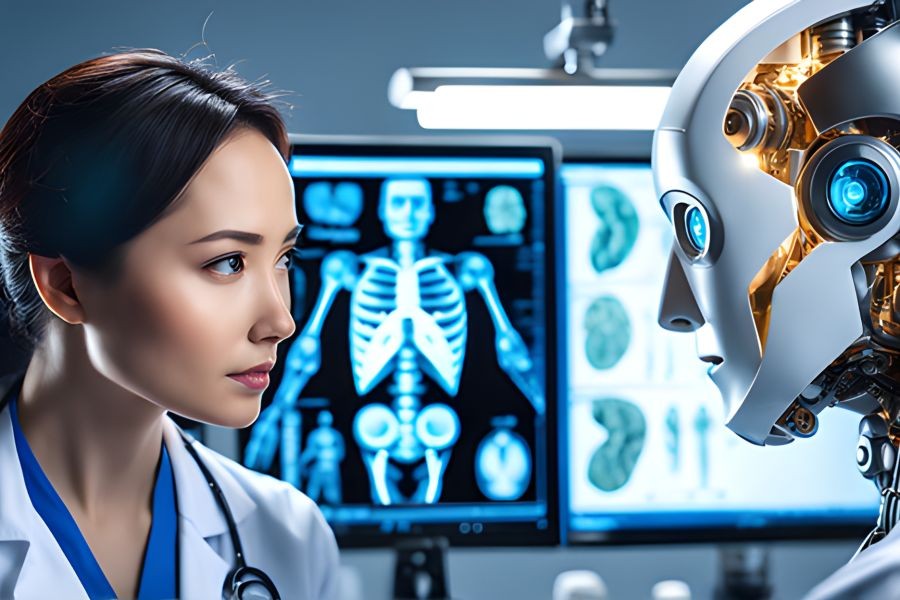Artificial intelligence (AI) is making significant strides across various sectors, including healthcare. In Australia, the potential for AI to transform the healthcare landscape is immense. However, the question remains: could AI replace doctors in Australia's healthcare system? This article delves into this multifaceted issue by exploring current trends, potential benefits, and challenges, as well as drawing insights from local and global examples.
The Current State of AI in Australian Healthcare
Australia's healthcare sector is no stranger to technological innovation. According to the Australian Bureau of Statistics (ABS), the country has seen a 15% increase in digital health initiatives over the past five years. Initiatives like telemedicine and electronic health records (EHR) have laid the foundation for AI integration. Still, the extent to which AI can substitute the nuanced and complex role of doctors remains a topic of debate.
Case Study: AI in Radiology
One of the most promising areas for AI in healthcare is radiology. Algorithms can analyze medical images faster and, in some cases, more accurately than human radiologists. In Australia, Melbourne's Royal Hospital has successfully implemented AI to assist in diagnosing lung cancers, which resulted in a 20% increase in diagnostic accuracy. This highlights AI's potential to augment healthcare services, supporting doctors rather than replacing them.
Pros and Cons of AI Replacing Doctors
Pros:
- Efficiency and Speed: AI systems can process vast amounts of data quickly, leading to faster diagnosis and treatment plans.
- Cost-Effectiveness: Reducing the time doctors spend on repetitive tasks can lower healthcare costs, which is crucial given Australia's healthcare spending constitutes 10% of GDP.
- Accessibility: AI can make healthcare more accessible, especially in rural areas where medical professionals are scarce.
Cons:
- Lack of Empathy: AI lacks the human touch that is often crucial in patient care.
- Data Privacy Concerns: Handling sensitive patient data raises significant privacy issues, as highlighted by the Australian Competition & Consumer Commission (ACCC).
- Regulatory Hurdles: The Australian Prudential Regulation Authority (APRA) stresses the need for stringent regulations to ensure AI's safe implementation in healthcare.
Common Myths and Mistakes
Myth: AI will replace all doctors.
Reality: Experts argue that AI will complement doctors by handling data-heavy tasks, allowing them to focus on patient care.
Myth: AI diagnoses are infallible.
Reality: While AI can be highly accurate, machine learning models can also perpetuate existing biases in healthcare data.
Myth: AI is too expensive for widespread adoption.
Reality: Although initial costs are high, AI can lead to long-term savings by improving efficiencies and reducing errors.
Future Trends and Predictions
As AI technology continues to evolve, its role in healthcare will likely expand. By 2030, AI could be integrated into 70% of healthcare services in Australia, according to a report by CSIRO. However, this transformation requires robust regulatory frameworks and ethical guidelines to ensure that AI's integration enhances rather than disrupts healthcare services.
Conclusion: What’s Next for AI in Healthcare?
AI's potential to transform Australia's healthcare system is evident, but replacing doctors entirely is unlikely in the near future. Instead, AI will serve as a powerful tool that enhances medical practice, improves patient outcomes, and increases accessibility. As AI continues to develop, healthcare providers and regulators must work together to address ethical and practical challenges.
Want to stay informed about the latest in AI and healthcare? Subscribe to our newsletter for updates and insights from industry experts!
People Also Ask
- How does AI impact healthcare in Australia? AI enhances efficiency, reduces costs, and improves diagnostic accuracy, making healthcare more accessible and effective.
- What are the biggest misconceptions about AI in healthcare? Many believe AI will replace doctors, but it is more likely to serve as a complementary tool that enhances healthcare delivery.
- What are the best strategies for implementing AI in healthcare? Focus on data security, regulatory compliance, and integrating AI tools that enhance rather than replace existing healthcare services.
Related Search Queries
- AI in healthcare in Australia
- Future of AI in medicine
- AI and data privacy in healthcare
- Robotics in Australian hospitals
- AI healthcare startups in Australia
- Impact of AI on Australian healthcare jobs
- AI medical diagnosis tools
- Australian healthcare innovation



































Evionyx Solar
6 months ago